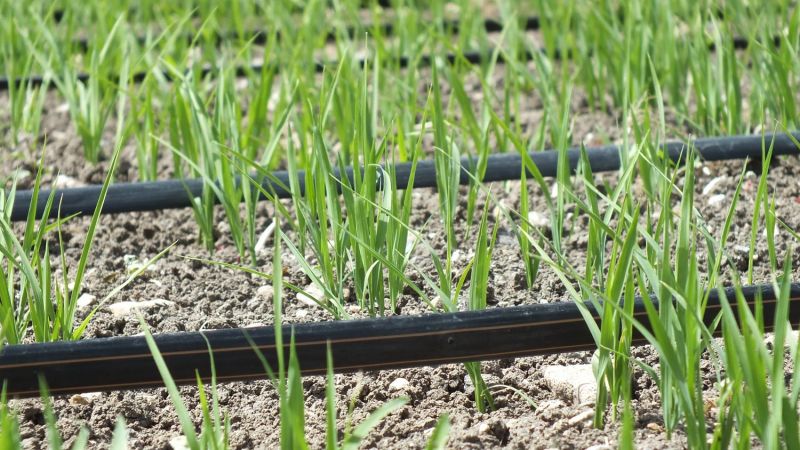Netafim Reveals First Carbon Credits Initiative for Global Rice Growers
Published on by Water Network Research, Official research team of The Water Network in Business
Orbia's Precision Agriculture Business Netafim Reveals First Carbon Credits Initiative for Global Rice Growers at COP27
Program developed to incentivize environmental cultivation of one of the world's most critical grains
 TEL AVIV, Israel and SHARM EL-SHEIKH, Egypt, Nov. 9, 2022 /PRNewswire/ -- Netafim , an Orbia business and a global leader in precision agriculture solutions, today announced the first ever carbon credit program for drip-irrigated rice. The aim of this inaugural program is to dramatically reduce methane emissions from rice cultivation to almost zero, while providing additional long-term income to growers.
TEL AVIV, Israel and SHARM EL-SHEIKH, Egypt, Nov. 9, 2022 /PRNewswire/ -- Netafim , an Orbia business and a global leader in precision agriculture solutions, today announced the first ever carbon credit program for drip-irrigated rice. The aim of this inaugural program is to dramatically reduce methane emissions from rice cultivation to almost zero, while providing additional long-term income to growers.
Rice is the most prolific source of sustenance worldwide, approximately accounting for 21% of global per capita caloric intake, and 27% per capita caloric intake in developing countries. A staple for more than half of the world's population, rice cultivation uses 30-40% of the world's annual consumption of freshwater while contributing to over 10% of the world's methane emissions.
With a history dating back to 1960s Israel as the pioneer of drip irrigation, Netafim has developed the end-to-end irrigation technology to revolutionize rice farming. For over 15 years, Netafim has been conducting research trials to create a sustainable approach to the crop's cultivation and a viable and resource-efficient alternative to traditional growing methods. As compared to conventional rice paddy farming, Netafim's drip irrigation technology out-produces paddy cultivation while using 70% less water, 30% less fertilizer, 36% less energy while reducing methane emissions to nearly zero and arsenic uptake by up to 90%.
With Netafim's innovation, carbon credits serve an important role in financially assisting farmers in adopting sustainable or regenerative agricultural practices that reduce or sequester emissions, with each credit representing one ton of CO2 equivalent emissions.
Said Sameer Bharadwaj, CEO of Orbia, "Netafim's carbon credit program is a pioneering example of our company's commitment to solving for global food security and economic enablement while contributing to a healthy planet. Through this program, we are challenging 5,000-year-old assumptions about rice farming and demonstrating better, cleaner and more productive ways to sustain and advance lives around the world, by the billions."
"If just 10% of paddy rice farmers switch to drip, the drop in emissions will be equivalent to taking 40 million cars off the road," said Gaby Miodownik, Orbia's Executive Vice President & President, Precision Agriculture (Netafim). "This program marks the first time a carbon credit is being generated based on the application of irrigation technology. Netafim is extremely proud to lead this initiative. In the face of climate change, the only surefire route to sustainable agriculture is to grow more with less—less land, less water and significantly less greenhouse emissions."
Taxonomy
- Carbon
- Compliance & Voluntary Carbon Credits Markets
- Carbon Trading
- Carbon Emissions
- Carbon Footprint
1 Comment
-
Netafilm’s unique initiative in rice growing with multiple benefits of water conservation, reduced use of fertiliser and the most important of all reduction in carbon emission is highly commendable. Extensive demo plots in rice growing states of south India and Punjab in collaboration with progressive farmers and agri universities should fetch results fast. Looking forward to action in this field.